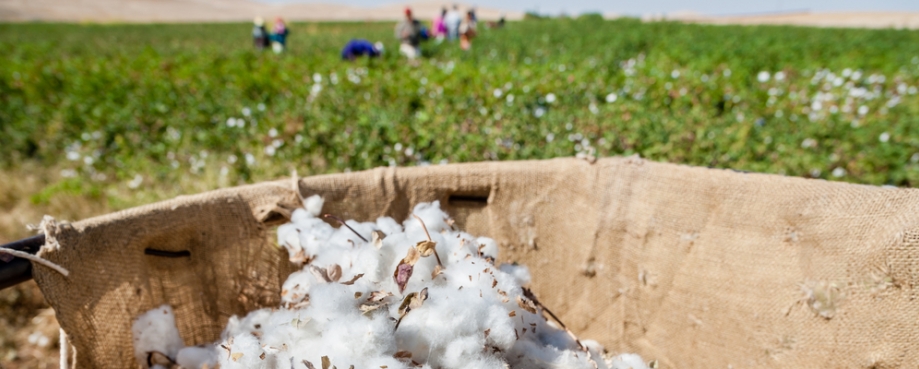
Anti-Slavery International is urging all brands to pledge not to knowingly source cotton from Turkmenistan due to systematic forced and child labour in the sector, writes Klara Skrivankova, UK and Europe Programme Manager.
All Turkmen cotton is produced in forced labour conditions.
Every year, the Turkmen Government forces tens of thousands of civil servants into the fields under threat of punishment, including loss of wages and termination of employment.
Our partners Alternative Turkmenistan News found that in the last harvest the situation had worsened: in 2017, for the first time in a decade, authorities in some districts also mobilised masses of children to pick cotton.
On top of that, the regime intimidates and detains activists who try to report on forced labour, such as Gaspar Matalaev, who is currently serving a three-year prison sentence on false fraud and bribery charges following the publication of his report into forced labour during the 2016 cotton harvest.
Internationally recognised concerns
Forced labour in Turkmenistan’s cotton production is an internationally recognised concern. In 2017, the UN urged Turkmenistan to ‘promptly put an end to forced labour in the cotton sector’, while in May of this year, the U.S. Customs and Border Protection issued a formal ban on the importation to the U.S. of ‘all Turkmenistan cotton or products produced in whole or in part with Turkmenistan cotton’.
In June, the U.S. State Department ranked Turkmenistan in tier 3 (the lowest possible category) in its Trafficking in Persons Report for the third year in a row.
Links to international supply chains
Turkmenistan is the 7th largest exporter of cotton in the world, and 80% of Turkmenistan’s cotton exports go to Turkey, Europe’s second-largest apparel supplier.
As a result, any businesses sourcing from Turkey could have forced labour in their supply chain. Several Western apparel companies have been linked to Turkmenistan production facilities, including through the Turkish company Calik Holding.
Businesses can help end forced labour
Anti-Slavery International has worked to end state-sponsored forced labour in the cotton sector in Central Asia for a decade, and we have seen how essential economic pressure has been in pressing for reforms.
A pledge not to knowingly source cotton from Uzbekistan, signed by over 250 brands, has proven a key point of leverage in moving the Uzbek Government to commit to reform of the state system of forced labour in cotton production (yet it is too soon to say that forced labour is no longer a problem in Uzbekistan).
We strongly encourage all brands to uphold the Uzbekistan Pledge, and to extend their commitment by signing the pledge not to knowingly source Turkmen cotton until the Government of Turkmenistan ends the practice of forced labour in its cotton sector.
This will send a clear message to the Turkmen government that international brands will not accept forced and child labour in their supply chains.
We also encourage brands to share their commitments publicly and to incorporate these principles into their supplier codes and contracts.
To sign the pledge, please use the online form.
For more information, please write to k.skrivankova@antislavery.org.
Letters will also be sent to selected UK Public Authorities to encourage them to adopt the pledge in their procurement practices.
